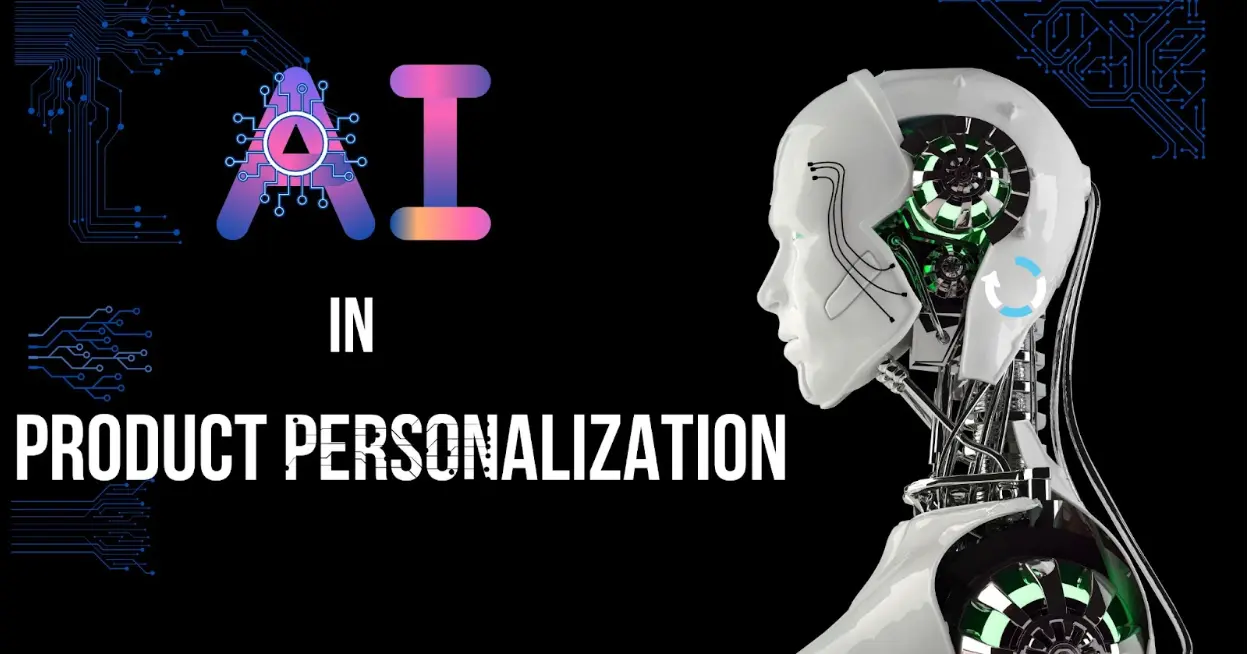We all know that artificial intelligence (AI) has revolutionized the eCommerce industry by providing personalized experiences to customers, and it’s not only eCommerce product personalization; we can see the changes in every sector.
eCommerce retailers use AI algorithms to analyze customer data, such as browsing history, purchase history, and demographic information, to offer customized recommendations, product suggestions, and personalized promotions.

It has helped to increase customer loyalty and satisfaction and boost sales and revenue. As the eCommerce industry grows, AI will become even more essential in providing customers with a personalized shopping experience.
Though AI has helped us make our life easy, every good thing comes with its own complications.
In the case of AI, difficulties come with data privacy, ensuring privacy, and other things. So, let’s dive deeply into AI in Product Personalization for eCommerce.
What is Product Personalization in eCommerce?
Let’s start with an example so you can understand easily, Imagine that you walk into a physical store, and the store associate greets you by name and asks if they can assist you with anything.
You tell them you are looking for a new pair of running shoes, and the store associate takes you to a section with various brands and styles.
As you look at the shoes, the store associate notices that you prefer a specific brand and color based on your previous purchase history or your conversations with them during an earlier visit. They then suggest a few shoes that fit your preferences, style, and needs.
It’s similar to product personalization in eCommerce. When you visit an eCommerce website, the website can recognize you as a returning customer and provide a personalized shopping experience. This is where an ecommerce product configurator can enhance that experience further.
It could include showing you product recommendations based on past purchases, suggesting products based on your search history, and offering promotions that fit your interests.
Product personalization aims to create a more personalized and engaging shopping experience for customers, which can increase customer satisfaction and loyalty and ultimately drive sales for the eCommerce business.

Read more about the importance of product personalization in eCommerce and how it can benefit your business from a reliable resource and good friend.
The Integration of Artificial Intelligence in Product Personalization
Integrating artificial intelligence (AI) in product personalization has transformed how eCommerce businesses interact with customers.
AI algorithms analyze vast customer data, including browsing history, purchase history, and demographic information, to offer personalized recommendations and product suggestions.
Here are some examples of how AI can be of use in product personalization for eCommerce:
-
Personalized recommendations
When a customer visits an eCommerce website, AI-powered recommendation engines can analyze their browsing history and suggest products tailored to their interests and preferences.
Example: Amazon's recommendation engine suggests products based on the customer's past purchases, browsing history, and even those viewed by other customers with similar interests.
-
Chatbots
The best AI-powered chatbots can assist customers with their queries, provide recommendations, and help the checkout experience.
These chatbots use machine learning algorithms, which allow them to understand natural language and give a personalized response to each customer.
Example: H&M's chatbot on Facebook Messenger can help customers find products based on their preferences and even offer style advice.
-
Product customization
Some eCommerce companies allow customers to customize their products based on their preferences, such as color, size, and design.
AI can suggest personalized options based on the customer's browsing history and demographic information.
Example: Nike's custom sneaker builder lets customers personalize their shoes by selecting color, material, and design.
Benefits of AI in Product Personalization
Integrating AI in product personalization offers numerous benefits for eCommerce businesses and customers.
AI algorithms can analyze vast amounts of customer data to provide personalized recommendations, enhance the customer experience, increase sales, improve inventory management, and create more efficient marketing campaigns.
Example: Netflix's recommendation system uses AI algorithms to analyze a customer's viewing history and suggest movies and TV shows that align with their interests and assist them with their side tasks such as using Netflix for language learning.
It’s increased customer satisfaction and retention, as customers are more likely to continue their subscriptions when they feel they are getting personalized recommendations that align with their preferences.
Challenges and Limitations of AI in Product Personalization
-
Data privacy
Data privacy is a significant limitation of AI in product personalization.
As AI algorithms rely on vast amounts of customer data to make personalized product recommendations, there is a risk that customer data can be misused or mishandled.
It can lead to a breach of customer trust and customer confidence in the eCommerce business.
eCommerce businesses must have robust data privacy policies to protect their customer's private information and be transparent about their data use.
-
Ensuring accuracy
Ensuring accuracy is a limitation of AI in product personalization.
While AI algorithms can provide highly personalized product recommendations, there is a risk that these recommendations may not accurately reflect a customer's preferences or needs.
It can lead to frustration or dissatisfaction with the product or the shopping experience.
eCommerce businesses must continually refine and improve their AI algorithms to ensure that they are accurately predicting customer behavior and preferences.
-
Importance of ethical consideration
The importance of ethical consideration is a limitation of AI in product personalization.
AI algorithms must be designed and used, respecting customers’ privacy and autonomy.
Additionally, there is a risk that AI algorithms may perpetuate biases and stereotypes that can harm certain groups of customers.
eCommerce businesses must prioritize ethical considerations when developing and implementing AI-powered product personalization to ensure that they are not causing harm to customers or violating their rights.
Final Words
Integrating AI in product personalization has transformed the eCommerce industry by providing customers with personalized shopping experiences.
However, there are challenges and limitations to consider, such as data privacy, ensuring accuracy, and the importance of ethical considerations.
Addressing these limitations and prioritizing ethical considerations in developing and implementing AI algorithms is crucial.


